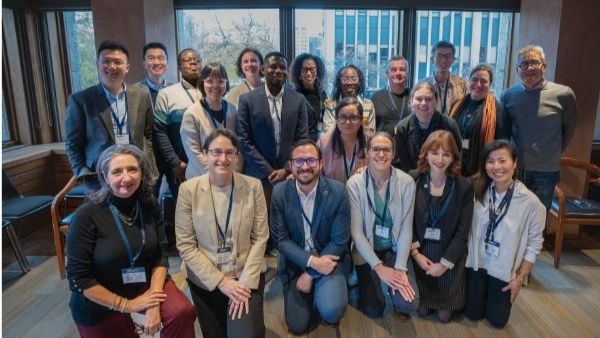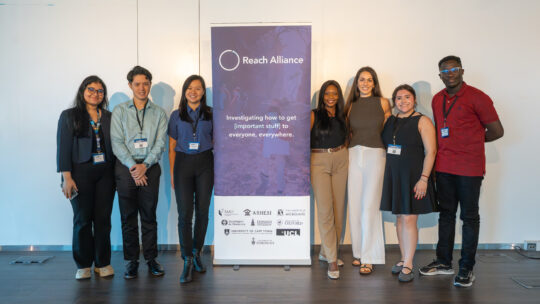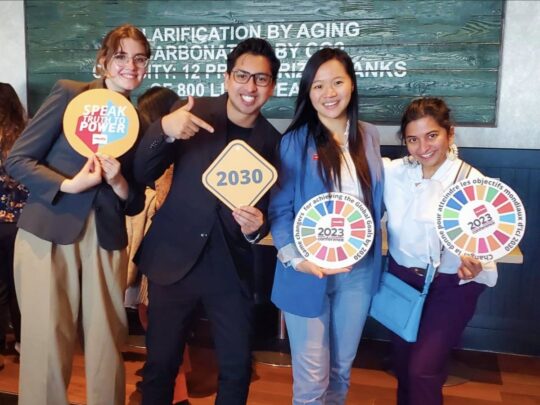At the Reach Alliance, we develop the leaders we need to solve urgent, local challenges of the hard to reach – those under-served for geographic, administrative, or social reasons. Central to this work is the unwavering support of our faculty mentors. Their guidance, expertise, and commitment to fostering collaboration and community are instrumental in transforming student-led research into impactful, real-world solutions.
Reach’s unique model thrives on interdisciplinary collaboration. Faculty mentors from diverse academic backgrounds—ranging from law and engineering to public health and social sciences—bring a wealth of knowledge and experience to the table.
Professor Sarah Haines from U of T emphasizes the importance of creating an inclusive environment where students are valued for their unique contributions. She notes, “The Reach Alliance helps me accomplish this goal (of inclusivity) through the students they recruit and the projects they choose.” This inclusive approach fosters a collaborative atmosphere where students feel empowered to lead and innovate.
Reach’s network spans continents, with faculty mentors from institutions such as Ashesi University in Ghana and University College London in the United Kingdom. This global community not only enhances the research but also provides students with a broader understanding of the challenges faced by different populations.
Professor Disraeli Asante-Darko of Ashesi University highlights the value of diverse cultural perspectives in research, stating, “The value of these students’ ability to think across disciplines and approach problems from multiple perspectives is essential to the assessment of the problem from a systems perspective.”
The role of a faculty mentor extends beyond academic guidance. They serve as sounding boards, critical thinkers, and sources of inspiration. They also remind the students that they are driving the research process. This empowerment builds confidence and fosters a sense of ownership for Reach student researchers.
Faculty mentors facilitate connections between students and industry practitioners, policymakers, and other stakeholders. These connections are crucial in translating research findings into actionable policies and practices. As Dr. Kate Roll from University College London notes, “There are many institutional challenges in implementing interdisciplinary work. Universities need to create new pathways and innovate administrative processes across silos to allow for impactful teaching and learning. Initiatives like Reach help to overcome these barriers.”
The support of faculty mentors is not just beneficial—it is essential to the success of Reach. Their dedication to collaboration, community, and mentorship ensures that our students are not only prepared to address global challenges but are also inspired to lead with purpose and passion. Together, we are building a future where knowledge knows no boundaries, and solutions are crafted with empathy and insight.




